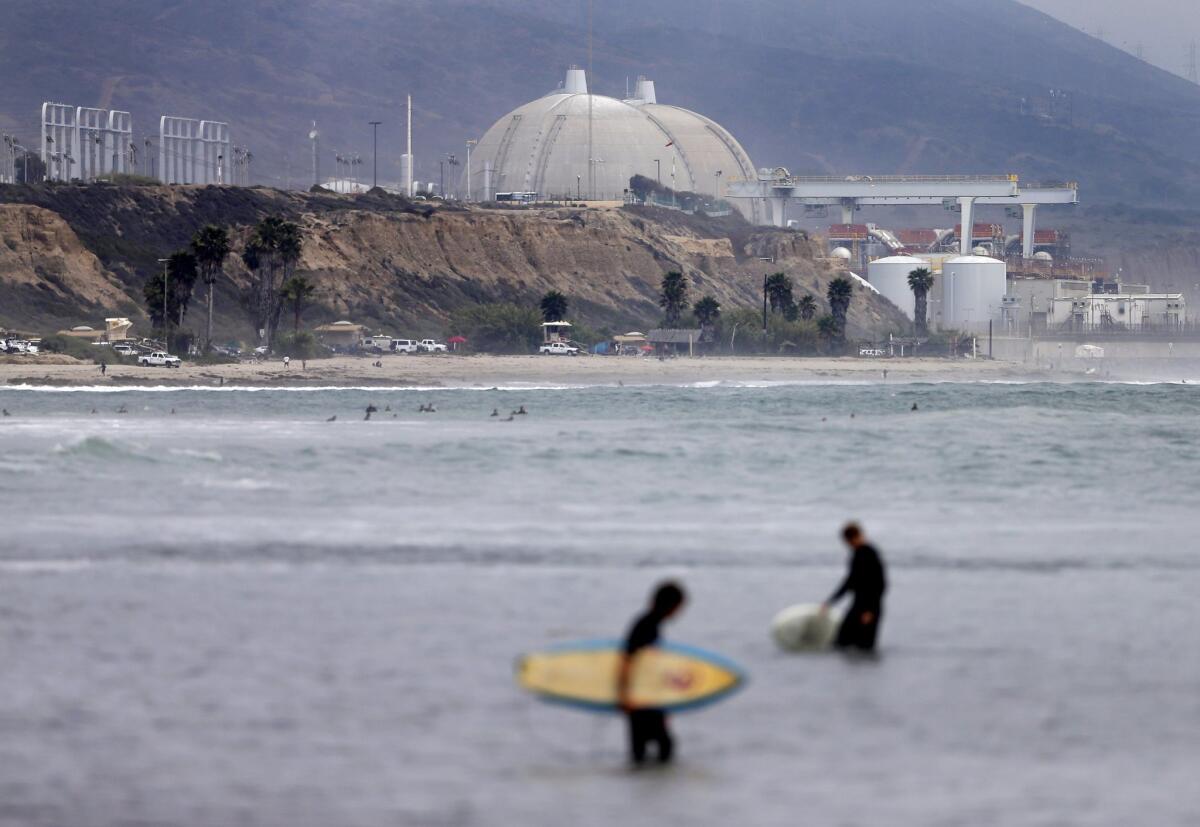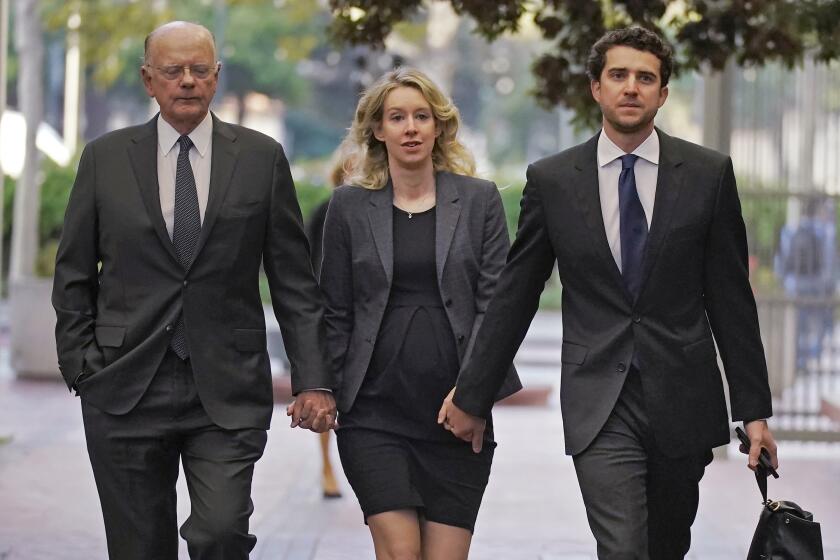Edison awarded $125 million for San Onofre’s faulty steam generators

- Share via
A three-member arbitration panel on Monday awarded Southern California utilities just $125 million in a multibillion-dollar lawsuit against a contractor for supplying faulty steam generators at the San Onofre nuclear plant.
Southern California Edison and its partners had sought $7.6 billion from Tokyo-based Mitsubishi Heavy Industries for delivering equipment that ultimately led to the permanent closure of the nuclear facility in 2013. Half of the money Edison had hoped to collect would have benefited consumers under a settlement agreement approved by state regulators.
But an arbitration panel of the International Chamber of Commerce in San Francisco voted 2-1 to award just a fraction of the claim. In addition, the ICC’s International Court of Arbitration ordered Edison to pay $58 million of Mitsubishi’s legal fees, lowering the payout even more.
That leaves Edison and co-owners San Diego Gas & Electric Co. and the city of Riverside with a net of $63 million to split with their customers, who are slated to pay about $3.3 billion in costs related to shuttering San Onofre while the utilities shoulder $1.4 billion.
“Just because Mitsubishi cannot be forced to pay doesn’t mean that ratepayers should bear the brunt of the costs caused by Edison’s mismanagement,” said Matt Freedman, executive staff attorney for the Utility Reform Network, a San Francisco consumer advocacy group.
Edison announced Monday that its share of the award from Mitsubishi would total $52 million.
“We had hoped the award would more accurately reflect the true magnitude of damage caused by Mitsubishi’s defective steam generators,” Edison President Ron Nichols said. “Unfortunately, the arbitration panel concluded that the contract’s prescribed liability limit should be respected and no additional award can be granted despite the harm caused.”
The liability limit under the contract was $137 million.
Spokesmen for Edison and Mitsubishi said they were reviewing the details of the decision.
One member of the arbitration panel filed a dissent to the decision, stating that Edison should have been awarded more than $1 billion.
In the various arbitration and settlement cases, the utilities’ customers consistently find themselves paying more than any other party for the problems that prematurely closed the San Onofre nuclear plant after tubes inside the new replacement steam generators wore thin in 2012 and leaked a small amount of radiation.
The $680-million generator upgrade was supposed to keep the plant operating for another 40 years.
Edison and SDG&E negotiated a $400-million settlement from their insurance company, the Nuclear Energy Insurance Limited, bringing the total from lawsuits and insurance to less than $500 million.
Michael Aguirre, a San Diego lawyer and former city and assistant U.S. attorney, said regardless of the decision in Edison’s lawsuit against Mitsubishi, consumers still should not be held responsible for the botched steam generator replacement.
“The dispute between the utility customers and Southern California Edison was something separate from its dispute with its subcontractor,” Aguirre said. “This does not remove that Edison acted unreasonable.”
Aguirre and other consumer advocates, including the Utility Reform Network, persuaded the California Public Utilities Commission to reopen the settlement agreement after revelations that Edison officials engaged in secret talks with commission representatives before the multibillion-dollar settlement was reached.
In particular, Michael Peevey, who was then commission president, and Stephen Pickett, who was Edison’s vice president for external relations, met during an energy industry junket in Warsaw.
In December 2015, regulators fined Edison $16.7 million for failing to report the talks.
Attorneys for the utility customers filed a class-action lawsuit against Edison and SDG&E that is pending before the U.S. 9th Circuit Court of Appeals.
The attorneys and the utilities are in joint negotiations over the class-action case and the reconsideration of the CPUC settlement agreement.
Follow me at @ivanlpenn
More to Read
Inside the business of entertainment
The Wide Shot brings you news, analysis and insights on everything from streaming wars to production — and what it all means for the future.
You may occasionally receive promotional content from the Los Angeles Times.











